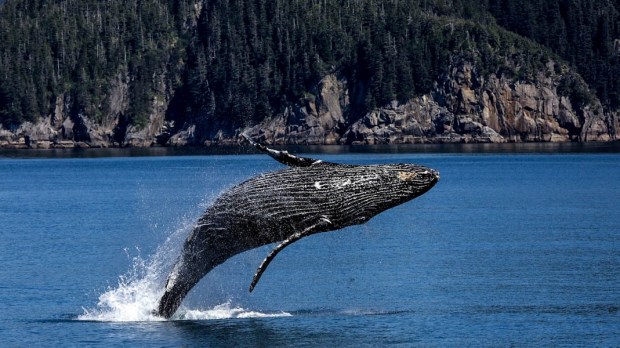The story of Jonah being swallowed by a whale has historically caused a bit of controversy, due to the significant lack of whales in the Mediterranean Sea. The question being, how could Jonah have been swallowed by an animal that is not native to the region? Now, however, the debate may be put to bed after a recent archaeological dig at Gibraltar has discovered evidence suggesting the Mediterranean was once home to several species of whales.
Researchers from the Archaeology Department at the University of York reportedly discovered the bones of whales in the ruins of five Roman fish-processing factories located at the Strait of Gibraltar. During the height of Ancient Rome (400 BCE-500 CE), Gibraltar was home of a large fish-processing industry. Hundreds of these now ruined factories still dot the landscape.
It is unusual to find whale bones at an archaeological site as they easily fragment and much of whale processing takes place at sea, leaving scant evidence for historians. These bones, however, were intact and prime for DNA testing, the results of which Breaking Israel News reports:
Using ancient DNA analysis and collagen fingerprinting, the researchers identified the bones as belonging to the North Atlantic Right whale (Eubalaena glacialis) and the Atlantic Gray whale (Eschrichtius robustus). Until their findings brought proof these species were common in the region, it was assumed that the Mediterranean Sea was outside of the historical range of the Right and Gray whales.
Co-author of the study Dr. Camilla Speller, from the University of York, commented, “Our study shows that these two species were once part of the Mediterranean marine ecosystem and probably used the sheltered basin as a calving ground.”
The report suggested the Romans were to blame for the disappearance of the large sea mammals. It is known that the ancient Romans had a penchant for for new and unusual foods and whales would have been quite the delicacy, as deep sea whales would have been too difficult to capture. It is now assumed that the Romans hunted the Right and Gray whales of the Mediterranean to extinction.
Lead author of the report, Dr. Ana Rodrigues, from the French National Centre for Scientific Research, explained:
“Romans did not have the necessary technology to capture the types of large whales currently found in the Mediterranean, which are high-seas species. But Right and Gray whales and their calves would have come very close to shore, making them tempting targets for local fishermen.”
Rabbi Shaul Judelman, former director of the Ecology Beit Midrash, has made a study of the religious implications of man’s relationship with the environment. He told Breaking Israel News:
“Civilization and economy has taken something that God set up in the world and destroyed it. That should be a serious message to someone who believes that God created the world and set man to guard over it. We need to pause and ask if something good or something bad happened here.”
Rabbi Judelman suggested that perhaps the Roman’s practice of hunting whales led to their being described in the Talmud as men “who hunted out of an intense desire to consume.”
“The rabbis certainly identified this trait of devouring and over-consuming in the Romans,” said. “Perhaps they even witnessed them hunting whales into extinction just for the sake of a new flavor and out of this experience set the return of the leviathan as a necessary part of geula.”
In recent years whale sightings have become a bit more frequent in the Mediterranean sea. In 2010, after sighting a Gray whale off the coast of Israel, Robert Brownell, a prominent cetacean researcher, compared the sight to “finding a dinosaur in your backyard.” Earlier this year a Blue whale was spotted off the coast of Eilat in southern Israel for the first time.

